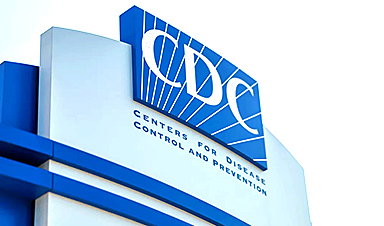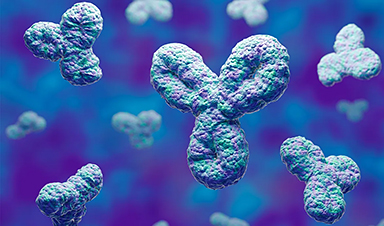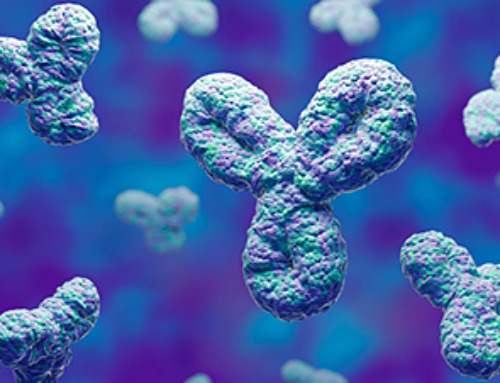This story was originally published on ProPublica, a nonprofit newsroom that investigates abuses of power. Sign up to receive our biggest stories as soon as they’re published.
Leaders at the Centers for Disease Control and Prevention ordered staff this week not to release their experts’ assessment that found the risk of catching measles is high in areas near outbreaks where vaccination rates are lagging, according to internal records reviewed by ProPublica.
In an aborted plan to roll out the news, the agency would have emphasized the importance of vaccinating people against the highly contagious and potentially deadly disease that has spread to 19 states, the records show.
A CDC spokesperson told ProPublica in a written statement that the agency decided against releasing the assessment “because it does not say anything that the public doesn’t already know.” She added that the CDC continues to recommend vaccines as “the best way to protect against measles.”
But what the nation’s top public health agency said next shows a shift in its long-standing messaging about vaccines, a sign that it may be falling in line under Health and Human Services Secretary Robert F. Kennedy Jr., a longtime critic of vaccines:
“The decision to vaccinate is a personal one,” the statement said, echoing a line from a column Kennedy wrote for the Fox News website. “People should consult with their healthcare provider to understand their options to get a vaccine and should be informed about the potential risks and benefits associated with vaccines.”
ProPublica shared the new CDC statement about personal choice and risk with Jennifer Nuzzo, director of the Pandemic Center at Brown University School of Public Health. To her, the shift in messaging, and the squelching of this routine announcement, is alarming.
“I’m a bit stunned by that language,” Nuzzo said. “No vaccine is without risk, but that makes it sound like it’s a very active coin toss of a decision. We’ve already had more cases of measles in 2025 than we had in 2024, and it’s spread to multiple states. It is not a coin toss at this point.”
For many years, the CDC hasn’t minced words on vaccines. It promoted them with confidence. One campaign was called “Get My Flu Shot.” The agency’s website told medical providers they play a critical role in helping parents choose vaccines for their children: “Instead of saying ‘What do you want to do about shots?,’ say ‘Your child needs three shots today.’”
Nuzzo wishes the CDC’s forecasters would put out more details of their data and evidence on the spread of measles, not less. “The growing scale and severity of this measles outbreak and the urgent need for more data to guide the response underscores why we need a fully staffed and functional CDC and more resources for state and local health departments,” she said.
Kennedy’s agency oversees the CDC and on Thursday announced it was poised to eliminate 2,400 jobs there.
When asked what role, if any, Kennedy played in the decision to not release the risk assessment, HHS’ communications director said the aborted announcement “was part of an ongoing process to improve communication processes — nothing more, nothing less.” The CDC, he reiterated, continues to recommend vaccination “as the best way to protect against measles.”
“Secretary Kennedy believes that the decision to vaccinate is a personal one and that people should consult with their healthcare provider to understand their options to get a vaccine,” Andrew G. Nixon said. “It is important that the American people have radical transparency and be informed to make personal healthcare decisions.”
Responding to questions about criticism of the decision among some CDC staff, Nixon wrote, “Some individuals at the CDC seem more interested in protecting their own status or agenda rather than aligning with this Administration and the true mission of public health.”
The CDC’s risk assessment was carried out by its Center for Forecasting and Outbreak Analytics, which relied, in part, on new disease data from the outbreak in Texas. The CDC created the center to address a major shortcoming laid bare during the COVID-19 pandemic. It functions like a National Weather Service for infectious diseases, harnessing data and expertise to predict the course of outbreaks like a meteorologist warns of storms.
Other risk assessments by the center have been posted by the CDC even though their conclusions might seem obvious.
In late February, for example, forecasters analyzing the spread of H5N1 bird flu said people who come “in contact with potentially infected animals or contaminated surfaces or fluids” faced a moderate to high risk of contracting the disease. The risk to the general U.S. population, they said, was low.
In the case of the measles assessment, modelers at the center determined the risk of the disease for the general public in the U.S. is low, but they found the risk is high in communities with low vaccination rates that are near outbreaks or share close social ties to those areas with outbreaks. The CDC had moderate confidence in the assessment, according to an internal Q&A that explained the findings. The agency, it said, lacks detailed data about the onset of the illness for all patients in West Texas and is still learning about the vaccination rates in affected communities as well as travel and social contact among those infected. (The H5N1 assessment was also made with moderate confidence.)
The internal plan to roll out the news of the forecast called for the expert physician who’s leading the CDC’s response to measles to be the chief spokesperson answering questions. “It is important to note that at local levels, vaccine coverage rates may vary considerably, and pockets of unvaccinated people can exist even in areas with high vaccination coverage overall,” the plan said. “The best way to protect against measles is to get the measles, mumps, and rubella (MMR) vaccine.”
This week, though, as the number of confirmed cases rose to 483, more than 30 agency staff were told in an email that after a discussion in the CDC director’s office, “leadership does not want to pursue putting this on the website.”
The cancellation was “not normal at all,” said a CDC staff member who spoke anonymously for fear of reprisal with layoffs looming. “I’ve never seen a rollout plan that was canceled at that far along in the process.”
Anxiety among CDC staff has been building over whether the agency will bend its public health messages to match those of Kennedy, a lawyer who founded an anti-vaccine group and referred clients to a law firm suing a vaccine manufacturer.

During Kennedy’s first week on the job, HHS halted the CDC campaign that encouraged people to get flu shots during a ferocious flu season. On the night that the Trump administration began firing probationary employees across the federal government, some key CDC flu webpages were taken down. Remnants of some of the campaign webpages were restored after NPR reported this.
But some at the agency felt like the new leadership had sent a message loud and clear: When next to nobody was paying attention, long-standing public health messages could be silenced.
On the day in February that the world learned that an unvaccinated child had died of measles in Texas, the first such death in the U.S. since 2015, the HHS secretary downplayed the seriousness of the outbreak. “We have measles outbreaks every year,” he said at a cabinet meeting with President Donald Trump.
In an interview on Fox News this month, Kennedy championed doctors in Texas who he said were treating measles with a steroid, an antibiotic and cod liver oil, a supplement that is high in vitamin A. “They’re seeing what they describe as almost miraculous and instantaneous recovery from that,” Kennedy said.
As parents near the outbreak in Texas stocked up on vitamin A supplements, doctors there raced to assure parents that only vaccination, not the vitamin, can prevent measles.
Still, the CDC added an entry on Vitamin A to its measles website for clinicians.
On Wednesday, CNN reported that several hospitalized children in Lubbock, Texas, had abnormal liver function, a likely sign of toxicity from too much vitamin A.
Texas health officials also said that the Trump administration’s decision to rescind $11 billion in pandemic-related grants across the country will hinder their ability to respond to the growing outbreak, according to The Texas Tribune.
Measles is among the most contagious diseases and can be dangerous. About 20% of unvaccinated people who get measles wind up in the hospital. And nearly 1 to 3 of every 1,000 children with measles will die from respiratory and neurologic complications. The virus can linger in the air for two hours after an infected person has left an area, and patients can spread measles before they even know they have it.
This week Amtrak said it was notifying customers that they may have been exposed to the disease this month when a passenger with measles rode one of its trains from New York City to Washington, D.C.
News
Specially engineered antibody delivers RNA therapy to treatment-resistant tumors
Elias Quijano, PhD; Diana Martinez-Saucedo, PhD; Zaira Ianniello, PhD; and Natasha Pinto-Medici, PhD, there are 25 other contributors, most from Yale's Department of Therapeutic Radiology and from the departments of genetics, molecular biophysics and [...]
Vaccinated women face fewer cervical cancer risks
New data from Denmark shows the HPV vaccine’s powerful long-term impact, while also revealing why cervical cancer screening is still essential. A Danish study published in the journal Eurosurveillance reports that women who received the human [...]
3D-printed implant offers a potential new route to repair spinal cord injuries
A research team at RCSI University of Medicine and Health Sciences has developed a 3-D printed implant to deliver electrical stimulation to injured areas of the spinal cord, offering a potential new route to [...]
Nanocrystals Carrying Radioisotopes Offer New Hope for Cancer Treatment
The Science Scientists have developed tiny nanocrystal particles made up of isotopes of the elements lanthanum, vanadium, and oxygen for use in treating cancer. These crystals are smaller than many microbes and can carry isotopes of [...]
New Once-a-Week Shot Promises Life-Changing Relief for Parkinson’s Patients
A once-a-week shot from Australian scientists could spare people with Parkinson’s the grind of taking pills several times a day. The tiny, biodegradable gel sits under the skin and releases steady doses of two [...]
Weekly injectable drug offers hope for Parkinson’s patients
A new weekly injectable drug could transform the lives of more than eight million people living with Parkinson's disease, potentially replacing the need for multiple daily tablets. Scientists from the University of South Australia [...]
Most Plastic in the Ocean Is Invisible—And Deadly
Nanoplastics—particles smaller than a human hair—can pass through cell walls and enter the food web. New research suggest 27 million metric tons of nanoplastics are spread across just the top layer of the North [...]
Repurposed drugs could calm the immune system’s response to nanomedicine
An international study led by researchers at the University of Colorado Anschutz Medical Campus has identified a promising strategy to enhance the safety of nanomedicines, advanced therapies often used in cancer and vaccine treatments, [...]
Nano-Enhanced Hydrogel Strategies for Cartilage Repair
A recent article in Engineering describes the development of a protein-based nanocomposite hydrogel designed to deliver two therapeutic agents—dexamethasone (Dex) and kartogenin (KGN)—to support cartilage repair. The hydrogel is engineered to modulate immune responses and promote [...]
New Cancer Drug Blocks Tumors Without Debilitating Side Effects
A new drug targets RAS-PI3Kα pathways without harmful side effects. It was developed using high-performance computing and AI. A new cancer drug candidate, developed through a collaboration between Lawrence Livermore National Laboratory (LLNL), BridgeBio Oncology [...]
Scientists Are Pretty Close to Replicating the First Thing That Ever Lived
For 400 million years, a leading hypothesis claims, Earth was an “RNA World,” meaning that life must’ve first replicated from RNA before the arrival of proteins and DNA. Unfortunately, scientists have failed to find [...]
Why ‘Peniaphobia’ Is Exploding Among Young People (And Why We Should Be Concerned)
An insidious illness is taking hold among a growing proportion of young people. Little known to the general public, peniaphobia—the fear of becoming poor—is gaining ground among teens and young adults. Discover the causes [...]
Team finds flawed data in recent study relevant to coronavirus antiviral development
The COVID pandemic illustrated how urgently we need antiviral medications capable of treating coronavirus infections. To aid this effort, researchers quickly homed in on part of SARS-CoV-2's molecular structure known as the NiRAN domain—an [...]
Drug-Coated Neural Implants Reduce Immune Rejection
Summary: A new study shows that coating neural prosthetic implants with the anti-inflammatory drug dexamethasone helps reduce the body’s immune response and scar tissue formation. This strategy enhances the long-term performance and stability of electrodes [...]
Scientists discover cancer-fighting bacteria that ‘soak up’ forever chemicals in the body
A family of healthy bacteria may help 'soak up' toxic forever chemicals in the body, warding off their cancerous effects. Forever chemicals, also known as PFAS (per- and polyfluoroalkyl substances), are toxic chemicals that [...]
Johns Hopkins Researchers Uncover a New Way To Kill Cancer Cells
A new study reveals that blocking ribosomal RNA production rewires cancer cell behavior and could help treat genetically unstable tumors. Researchers at the Johns Hopkins Kimmel Cancer Center and the Department of Radiation Oncology and Molecular [...]






















